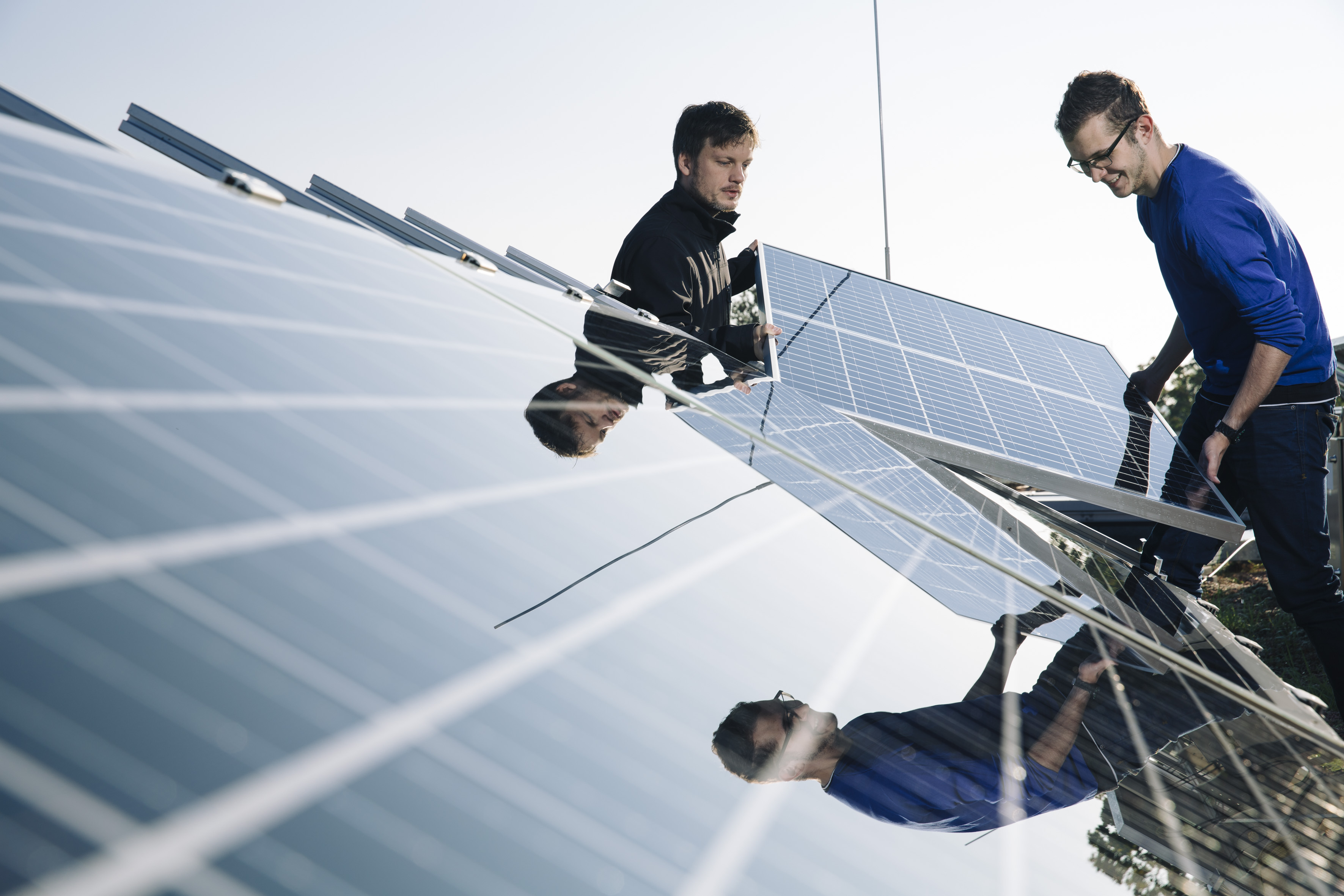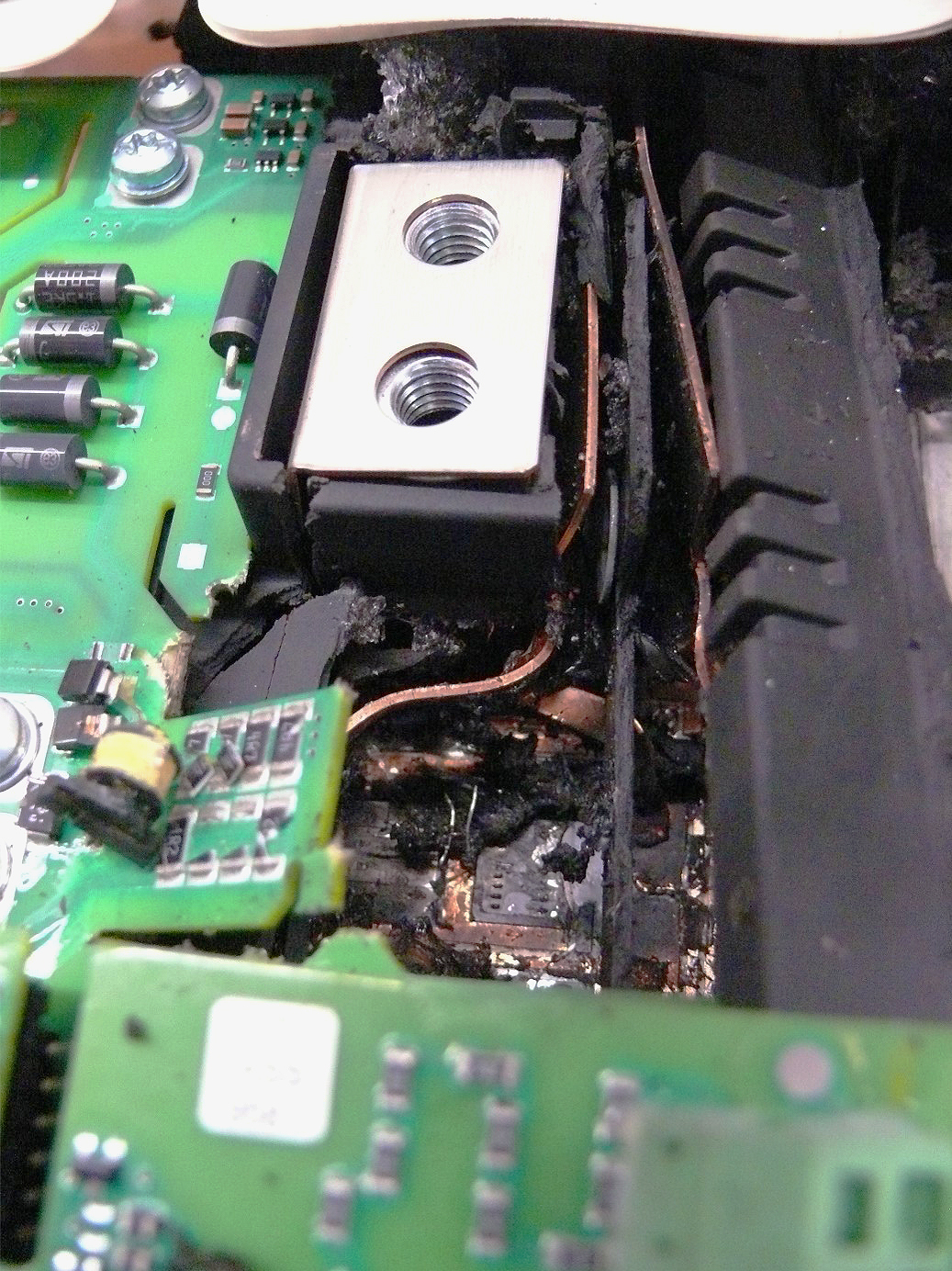Solutions for technology, material selection and design of energy converters with special operating conditions
Inverters in photovoltaic systems and wind turbines are indispensable technological components of the energy transition. However, due to the combination of climatic, thermal and electrical loads, they are among the most frequently failing system components. In the recently completed project "Reliable converters for renewable energy supply (power4re)", five institutes of the Fraunhofer-Gesellschaft, including the Fraunhofer Institute for Microstructure of Materials and Systems IMWS, have developed significantly improved solutions. They have gained new insights into areas of weakness, failure modes, influencing factors and defect mechanisms, while also developing improved test methods to increase robustness and reliability.


Inverters are particularly relevant for the grid connection of photovoltaic and wind energy systems: They ensure that energy generated from renewable sources can be fed into the grid at the correct voltage and frequency. During this process, they are exposed to particularly challenging operating and environmental conditions, which has so far resulted in relatively frequent defects and failures leading to considerable costs for system operators.
In the "power4re" project, the Fraunhofer experts initially identified particularly relevant weak points from field data and defect analyses. Over the course of the three-year project, they determined which factors can be responsible for defects, how failures can be reliably detected and at what point it becomes critical for the components' functionality. Their work took into account the operating and environmental conditions of inverters as well as the choice of materials and the design of the respective components.
"When optimizing inverters, it's not enough to look at the hardware and consider materials and and, by way of example, at materials and manufacturing processes. Typical application conditions - challenges here range from electrical defects such as short circuits, corrosion and moisture exposure to delamination and mechanical stresses- are crucial here and require suitable test procedures," says Sandy Klengel, manager of the " Assessment of Electronic Systems Integration" group and head of the sub-project at the Fraunhofer IMWS.
The institute in Halle (Saale) has dedicated itself primarily to the material diagnostics of components and materials and has contributed its particular expertise. This concerns, for example, their expertise on corrosion processes of electronic components, on degradation mechanisms of insulatign materials affected by moisture and also on the evaluation of packaging materials and coatings.
As part of the project, researchers at Fraunhofer IMWS have gained valuable new insights into the physical failure analysis of power modules of various power classes. Special attention was paid to early failures caused by moistureinsulation damage) and long-term degradation mechanisms, for example due to the possible accumulation of elements in the silicone gel of the power modules over the operating time and the consequent deterioration of corrosion resistance. "Here we were able to gain important expertise in the areas of optimizing the manufacturing processes and of assembling the modules in the system. With this know-how, failure risks can be minimized, thus lowering maintenance costs and ultimately also reducing electricity generation costs," says Sandy Klengel.
For the analyses, some methods were newly developed and existing methods adapted and further refined, such as methods for determining the moisture absorption and diffusion of ionic impurities and harmful gases in silicone gel. The characteristic data obtained were used to develop a simulation model for possible variations in the permeation properties of different coatings. In doing so, it was also possible to take into account real-world environmental conditions, such as differences between day and night and summer and winter.
"We do now have a deeper understanding of the interactions between materials and defect the defect formation under different operating conditions. This is a crucial starting point for significantly improving component reliability and robustness for the development of the next product generations," says Sandy Klengel. These solutions can potentially be transferred to other application fields in which converters are exposed to similar environmental influences, such as rail transportion or electromobility.
The Fraunhofer Institutes for Wind Energy Systems IWES, for Integrated Systems and Device Technology IISB, for Solar Energy Systems ISE, for Reliability and Microintegration IZM and the Fraunhofer IMWS have pooled their expertise in the "Reliable converters for renewable energy supply (power4re)" project. They were supported by an advisory group of representatives from industrial companies.